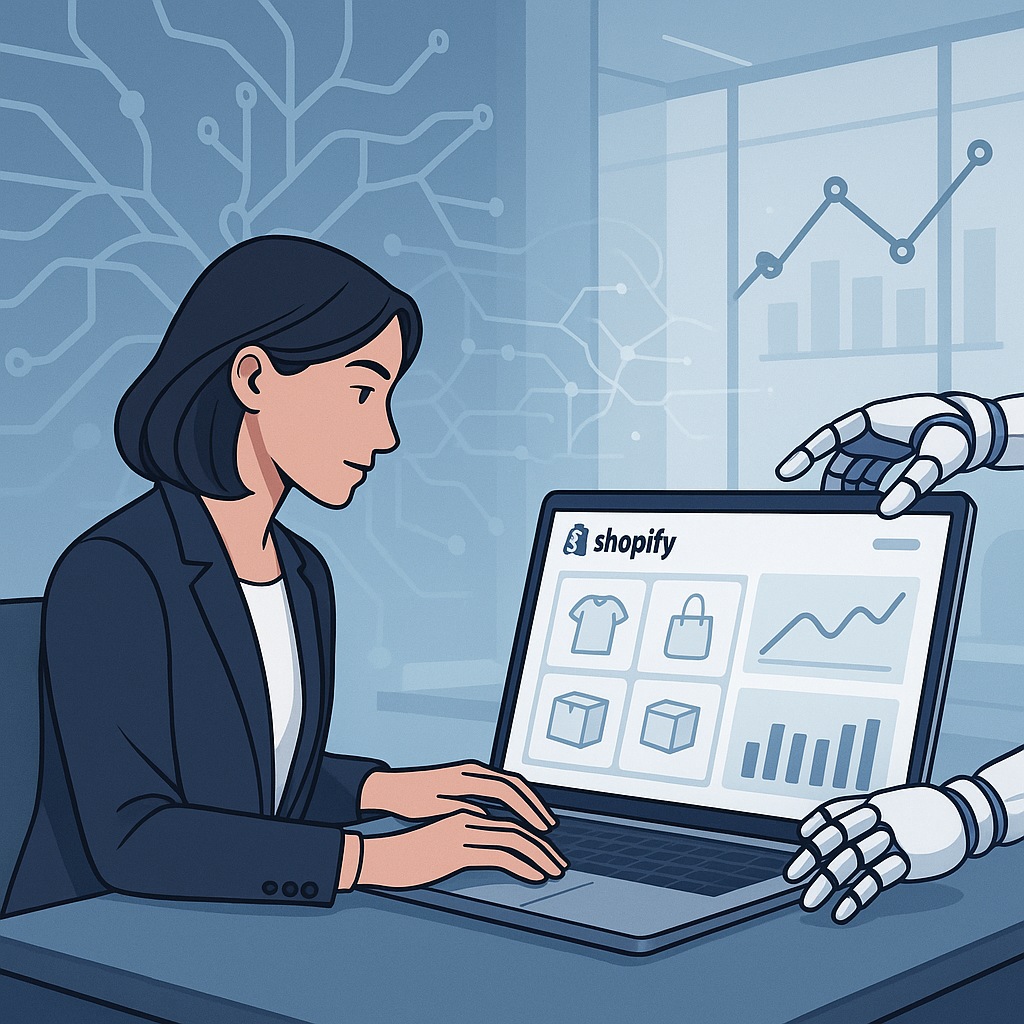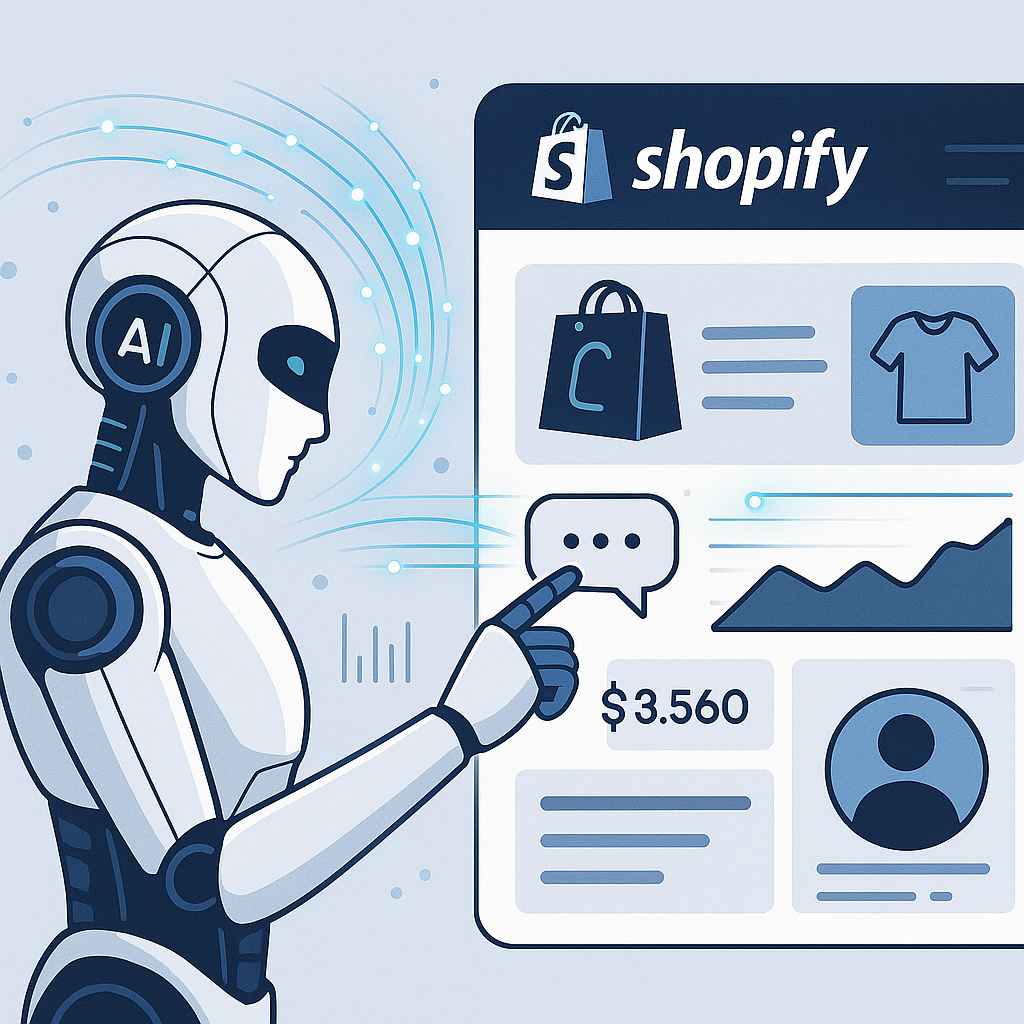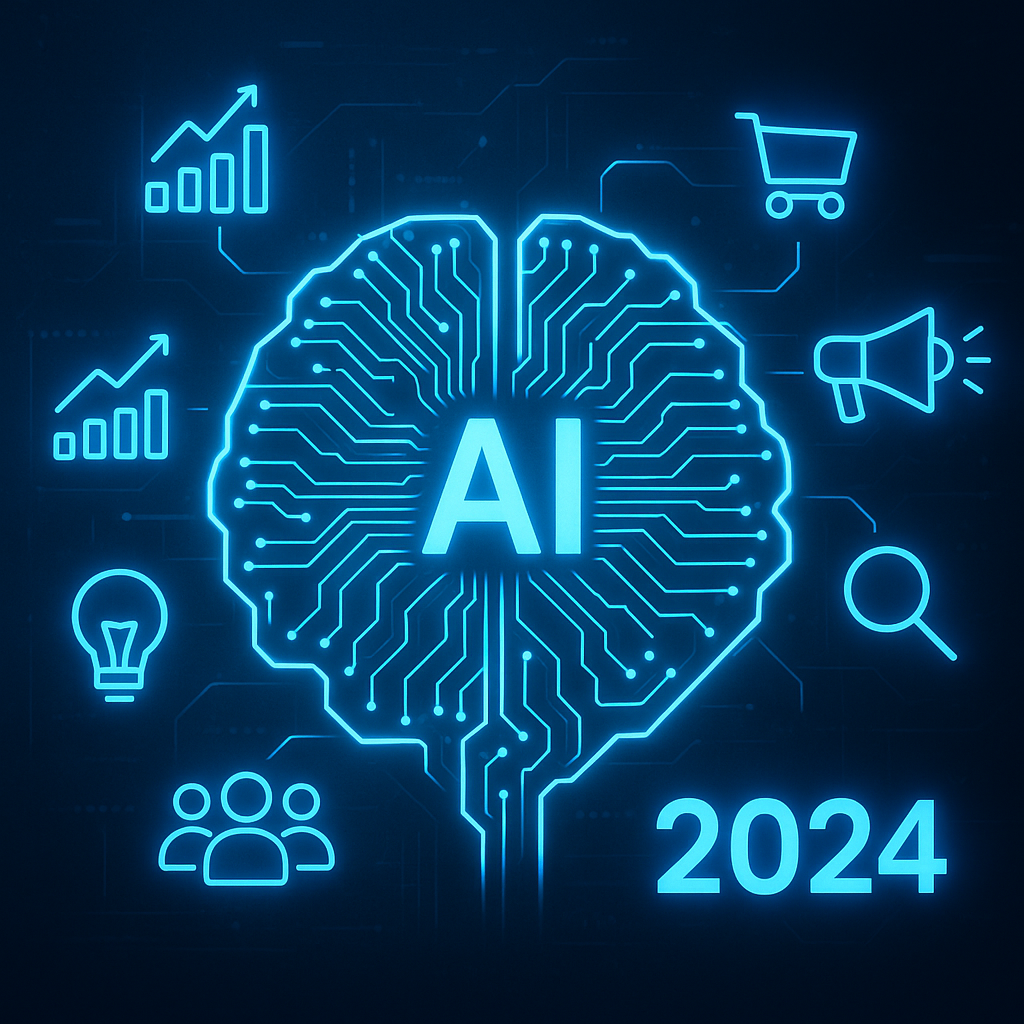
AI's Impact on Shopify Stores and Business Operations in 2025
Introduction: A New Era for E-Commerce and Business Operations
In 2025, artificial intelligence (AI) has profoundly reshaped the way entrepreneurs operate Shopify stores and manage their business processes. What was once a supplementary tool has evolved into a driving force transforming customer experiences, operational workflows, inventory management, and even strategic decision-making. This revolution is not limited to large corporations; small and medium-sized businesses also leverage AI to compete in an increasingly complex digital marketplace.
How ai is Transforming Shopify Stores
1. Hyper-Personalized Shopping Experiences
AI-powered recommendation engines go beyond traditional product suggestions, analyzing individual shopper behavior in real-time to tailor offers, messaging, and content. For instance, a Shopify store selling fitness wearables might dynamically adjust product displays based on a customer’s browsing history, current trends, and even weather conditions, creating a seamless and personalized journey that enhances engagement and conversion rates.
2. Intelligent Inventory Management
Inventory challenges are a perennial issue for e-commerce retailers. AI solutions forecast demand with remarkable precision by analyzing historical sales data, seasonality, and emerging trends. For example, a Shopify merchant specializing in handcrafted goods utilizes AI to anticipate stock needs months in advance, reducing surplus and avoiding stockouts, which saves costs and improves customer satisfaction.
3. Automated Customer Support
Chatbots and virtual assistants powered by natural language processing handle multiple customer queries simultaneously, providing instant responses 24/7. These AI agents can manage order tracking, returns, and product information, freeing entrepreneurs from repetitive tasks and allowing them to focus on growth and innovation. In 2025, sophisticated AI systems also escalate complex issues to human agents more efficiently, ensuring high customer satisfaction.
4. Dynamic Pricing Strategies
One of AI’s underappreciated capabilities in Shopify stores is dynamic pricing. By continuously analyzing market conditions, competitor pricing, and demand elasticity, AI algorithms adjust prices in real-time to optimize sales and profits. A boutique fashion Shopify store, for example, might use AI to identify the optimal price points during peak shopping seasons or flash sales.
Streamlining Business Operations with AI
1. Process Automation and Workflow Optimization
Modern entrepreneurs face the challenge of managing diverse operational tasks such as order fulfillment, supplier coordination, and financial tracking. AI integrates with business management platforms to automate routine activities like invoicing, shipment scheduling, and compliance checks, reducing errors and accelerating processes.
2. Enhanced Data Analytics and Predictive Insights
AI tools analyze massive datasets to provide actionable insights into customer behavior, marketing effectiveness, and supply chain performance. Entrepreneurs use these insights to preempt market shifts, optimize product lines, and allocate resources more effectively. For example, a Shopify store owner in the tech gadget niche can leverage AI to identify emerging customer preferences and adapt stock and campaigns proactively.
3. Smarter Marketing Automation
AI amplifies marketing capabilities by automating campaign creation, segmentation, and personalized content delivery across multiple channels. This intelligent automation ensures that entrepreneurs reach the right audiences at the right times with tailored messages, improving ROI and brand loyalty.
4. Fraud Detection and Security Enhancements
Cybersecurity remains a top concern. AI-driven systems monitor transaction patterns for suspicious behavior, flagging potential fraud in real-time. In Shopify stores, this means safer payment processing and customer data protection, instilling trust and minimizing losses.
Practical Examples Illustrating AI’s Revolution
- Eco Home Supplies: A Shopify store specializing in sustainable household goods uses AI to personalize customer emails with product suggestions based on previous purchases combined with environmental data, increasing repeat sales by 30%.
- Peak Performance Fitness: Leveraging AI, this fitness apparel brand automates inventory replenishment aligned with social media trend spikes, keeping popular products in stock without overstocking.
- Artisan Bakery Supplies: AI chatbots handle peak season customer inquiries efficiently, providing baking tips and guiding product selections, which enhances customer interaction without expanding support staff.
Looking Ahead: The Future Landscape of AI in E-Commerce and Business Management
Entrepreneurs can expect AI to become even more deeply embedded in Shopify platforms and business operations, with advancements in AI explainability, ethical AI practices, and integrating AI with emerging technologies like augmented reality (AR) for immersive shopping experiences. The convergence of AI with blockchain may provide transparent supply chains and secure transactions, further elevating trust and operational efficiency.
Conclusion
Artificial intelligence is no longer a futuristic concept but a present-day reality revolutionizing Shopify stores and business operations for entrepreneurs. By harnessing AI’s capabilities, businesses in 2025 achieve significant improvements in customer personalization, operational agility, and strategic insight. This transformation enables entrepreneurs to navigate the complexities of the digital market with greater confidence and innovation.







